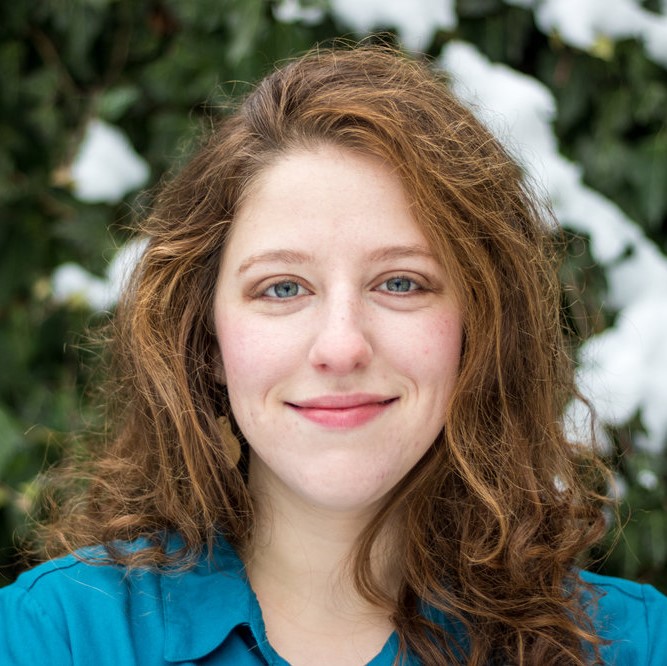
Three organizations have recently come together to extend technical resources, financial assistance and direct market access to historically underserved California farmers — especially Latinx and other farmers of color — in farming regions including Central California while boosting the amount of the state's farmland used to grow organic produce.
Daily Harvest, American Farmland Trust (AFT), and California Certified Organic Farmers Foundation (CCOF) have kicked off a multi-year partnership to help 100+ farmers implement regenerative agricultural practices and strengthen their farms’ long-term viability. According to the partnership, its “collective, long-term goal is to foster more profitable, sustainable farms in the U.S., making nourishing, responsibly-grown fruits and vegetables accessible for all.”
Building successful, viable farms and scaling organic farming in California
More than a third of vegetables and two-thirds of fruits and nuts for U.S. consumption are grown in California. Yet, “many farmers are struggling right now, with the pandemic upending markets, labor availability, input prices, and it’s further compounded by [California’s] historic drought [and] increasing climate-related natural disasters,” says Tom Stein, California Regional Director at AFT, a nonprofit that has supported the conservation agriculture movement since 1980.
AFT, whose motto is “No Farms, No Food, No Future,” and CCOF, a nonprofit founded in 1973 by California farmers who support the state’s certified organic program, have found an ally in Daily Harvest, a meal prep delivery service with a focus on organic ingredients.
Specifically, they will offer support to more than 100 farmers through one-on-one financial and technical assistance, workshops and business planning that marginalized farmers otherwise struggle to access. The financial assistance includes “supporting ten farmers with [up to] $10,000 a year for three years” to help transition their land from conventional farming to organic, CCOF Program Manager Adrian Fischer told TriplePundit.
The program’s participants will also benefit from the opportunity to join Daily Harvest’s supply chain so they can sell their crops with premium price guarantees.
A partnership designed to address systemic inequities
Stein offered an example of the type of farmer the program will help, explaining: “Consider a farmer growing mixed vegetables on a 5-acre farm in the San Joaquin Valley. They operate on a year-to-year lease and have relocated and farmed different lands several times over the past 15 years they’ve been farming. Most of the labor is done by hand and a small tractor, and they are barely profitable.”
Stein continued, “These farmers work another job in the city and farming is their second job. The surrounding wells on neighboring farms, essential to irrigating crops, are going dry. They are afraid their well may be next and they won’t be able to afford to repair it. They lost a lot of sales during the pandemic and have had to pay higher costs for water, irrigation materials, and fertilizers due to supply chain disruptions and drought, and they aren’t sure how long their farm will survive.”
In response, says Stein, the partnership will prioritize “practices that help conserve soil and water resources, such as drip irrigation, planting cover crops, applying compost, reducing tillage, and recharging groundwater.”
And it seeks to elevate one of the most marginalized yet vital groups. “As a mission driven, farmer-led organization, CCOF actively works to spread the economic, environmental, and social benefits of organic,” adds Fischer. “That is why our first cohort of grantees for this project in California is supporting Latinx farmers [...] a community that represents the largest farmworker population yet is underrepresented in farm ownership.”
The U.S. food system is dependent on Hispanic workers, who make up 51 percent of farm workers and 30 percent of farm managers, inspectors and supervisors nationally. Though some laborers have made progress towards becoming farm owners, it hasn’t yet solved the looming age and social gaps.
“The average California farmer is almost 60 years old and nearing retirement,” says Stein. “Through this partnership, we’ll continue our existing work to untangle and remedy some of the persistent effects of inequitable and discriminatory policies, systems, and practices that have targeted farmers of color [who are now] poised to help fill the void in this generational shift.”
An organic food system for a resilient future
Daily Harvest’s Director of Sustainability Rebecca Gildiner believes the partnership is strongly aligned with the company’s mission to “take care of food, so food can take care of you.”
“Daily Harvest is on a mission to reimagine an entirely new food system that’s actually human- and planet-driven,” Gildiner says. “While our goal may sound simple, achieving it is certainly not. But, we always start with the soil and the people who tend to it through [how] and what we source [using] regenerative practices that are safer for farmers, their communities, and the planet.”
3p also asked CCOF’s Fischer what it would look like to realize CCOF’s vision of “a world where organic is the norm.”
“The impact would be tremendous,” Fischer says. “We can use the power of organic farms to build healthy soils, reduce levels of CO2 in the atmosphere, and mitigate climate change. By investing in organic farms, we also reinvest dollars within the community.
“Working toward fulfilling this mission, AFT, Daily Harvest, and CCOF are investing in a healthier, more resilient and prosperous world for the economy, people, and the planet,” added Fischer.
Image credit: Tim Mossholder via Unsplash

Chloé is a content marketer and storyteller in the sustainability, SaaS, and education fields. From NYC and based in Odense, Denmark, she is a foodie and frequent traveler most likely to be found in a café. She writes about coffee, food waste, sustainability innovation, and environmental conservation.














